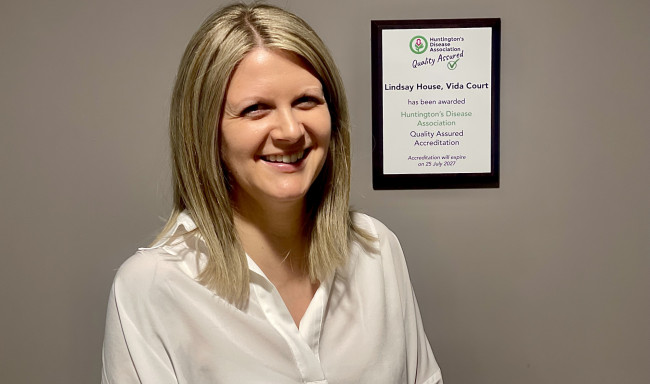New NICE guideline recognises the importance of care coordination for people with Huntington’s disease
The National Institute for Health and Care Excellence (NICE) has published a new guideline on rehabilitation for people living with progressive neurological conditions — and it includes an important step forward for the Huntington’s community.
One of the key recommendations is that people with progressive neurological conditions, including Huntington’s disease, should have a single point of contact to coordinate their care.
Why this matters
Ideally, in a complex illness such as Huntington’s disease, the person responsible for coordinating care would have specific knowledge and understanding of Huntington’s disease.
Care coordinators provide expert advice on care, along with practical and emotional support, helping people to manage their condition throughout their lives. They liaise with a range of providers that a person may need support from including mental health services, occupational therapy, and social care.
Crucially, they act as a bridge between a person’s specialist Huntington’s disease service and community services. This means ensuring that health and social care professionals have the knowledge they need about Huntington’s and can work together to deliver high-quality, joined-up care.
In a condition as complex and evolving as Huntington’s disease, this single point of contact can be truly life-changing — helping families feel supported and understood every step of the way.
Our role in shaping the guideline
During NICE’s consultation process, we highlighted just how vital care coordination is for families affected by Huntington’s disease. We’re delighted that this has now been recognised in the final guidance.
Cath Stanley BEM, Chief Executive of the Huntington’s Disease Association, said:
“I’m delighted that the new NICE guideline recommends that people with progressive neurological conditions, including Huntington’s disease, have care coordination. Now we need to see the NHS take action and make sure that this role is available for everyone with Huntington’s disease. Care coordination has been a key part of our campaigning. This represents real progress in ensuring families are not left to coordinate care alone. We know how exhausting it can be to manage multiple appointments while also having to educate professionals about the disease.”
What happens next?
While NICE guidelines are not mandatory, they are influential and expected to shape best practice across the NHS.
The Huntington’s Disease Association will now:
- Write to Members of Parliament to raise awareness and encourage NHS commissioners to act
- Contact the Welsh Government to support adoption of the guideline in Wales
- Continue campaigning to make sure every family affected by Huntington’s disease can access expert, coordinated care
How you can help
We know that progress comes when our community speaks up together. If you’d like to support our campaign for better healthcare and care coordination for people with Huntington’s disease, join us. Please tick the campaign box below when you fill out the form.




